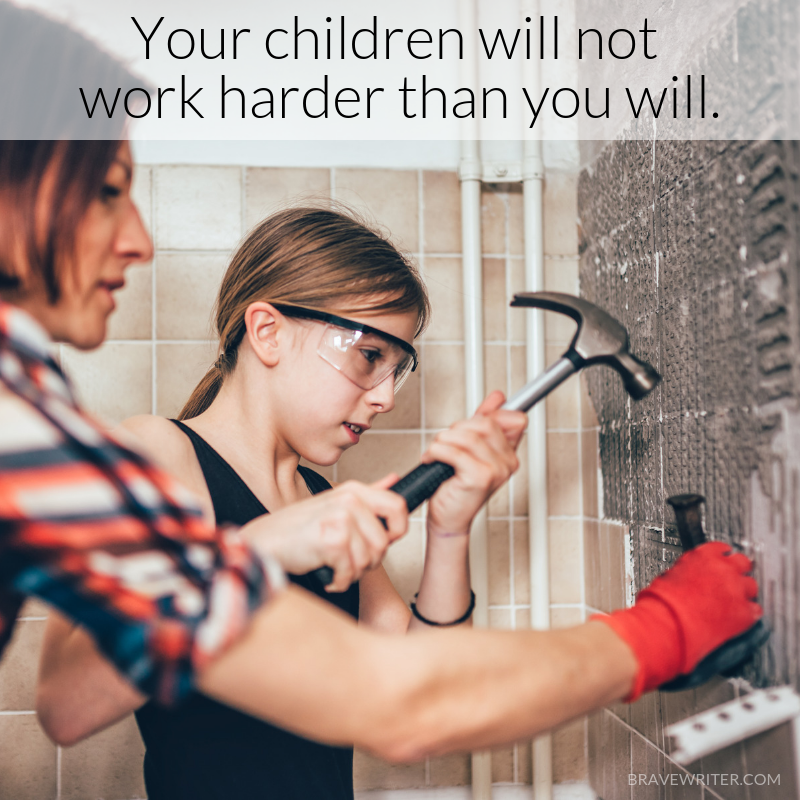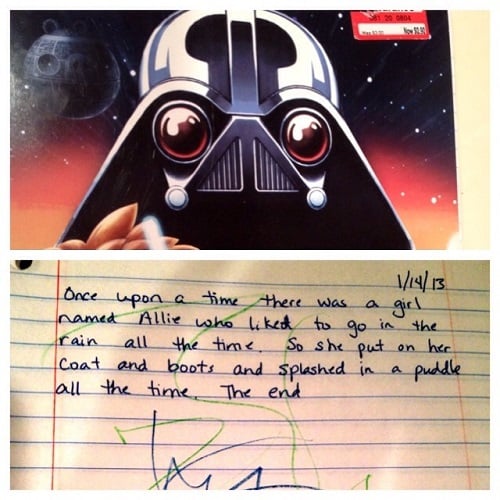You know how you get it right? By getting it wrong and making adjustments. By getting it right and repeating…until it doesn’t work and then you switch again. By toggling between what works and what doesn’t—staying responsive to the moment. Again and again.
You know how you get it wrong? By doing what doesn’t work. And then repeating it. And then defending it. And then reinforcing how right it is in spite of the evidence in front of your very eyes and blaming others for what doesn’t work.
If you are told that a certain practice will yield (fill in the blank) with your child and it doesn’t—if that child is miserable and angry, or listless and avoidant—that one doesn’t work. Stop.
Parenting and home education should not yield tension, ongoing anger, battle lines drawn, shaming, coercion, or repression.
We will all set boundaries that are too tight on the oldest child and boundaries that are fairly slack for the youngest. Welcome to parenting 101. Perfectly normal, ordinary, boring parenting. Well done.
What doesn’t work is rigidity that doesn’t see the child as a unique, choice-endowed, agent in his or her own life. This respectful view of the child must start early if we’re going to survive the teen years. Teenagers, even in families that were attachment parents and round-the-clock breastfeeding, non-spanking, shared sleepers, will foil your vision of who you thought they’d become. Why? They’re teenagers. Their job is to differentiate—to become “not” you. They want to prove to themselves that they will, in fact, be adults in their own right. They can’t know themselves if they are busy trying to be who you think they should be, or if they have to oppose what you think they should be. That just delays the self-awareness piece they deserve to explore.
I have said many times—just because your kids show you how different they really are than you doesn’t mean they are becoming worse people. In fact, in many cases, your teens will become much better people than you were at their ages. They just might care about different causes than you do.
All this to say: we make the mistake of barging in with our great ideas, our good advice, our systems and methods, our aspirations, our desire to protect our kids from what we suffered. Again: good parenting—those desires spring from invested loved.
Our job is to notice the effect of our advice, boundaries, rules, opinions, suggestions, interferences, and requirements. Then we can be the responsive people our kids need. Anything (short of molestation and violence) can be repaired with love and adjustment. Kids are tremendously forgiving people (no backlog of resentments yet). You can modify any decision, shorten any consequence, revise any plan, and rethink any viewpoint. They will respect you when you do.
It’s also good to ask forgiveness and to let them in on what your process is. “I heard that this is a good strategy to help you grow into a person who is responsible and kind. Does it sound like it would help you be that kind of person? Do you want to be that kind of person? What are your thoughts?”
Then be truly interested in the answer.
Our children are smart! They have minds and thoughts and ideas about who they are and who they want to become. You did too, at their ages. Remember how you felt minimized or managed by your parents. Let that guide you now in how you treat your children. They deserve just as much care and reverence as the good china.
It’s not what you do—we all do stuff we want to fix or change or repair.
It’s what you do next—how you adjust, modify, really listen, and show care.
Cross-posted on facebook.


























